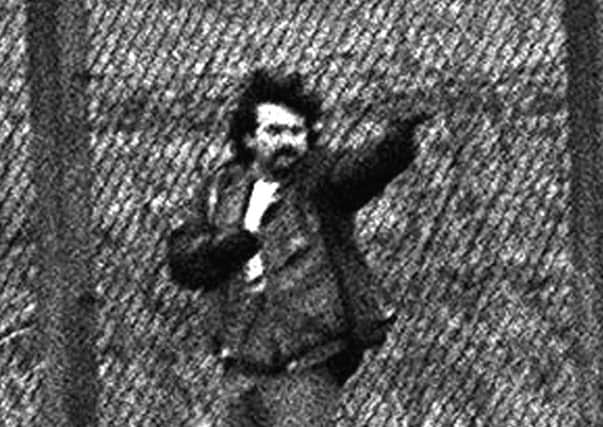Michael Stone should serve six more years in prison, court told


The Milltown Cemetery bomber is set to go before Parole Commissioners next week in a bid to be freed from jail.
But lawyers for the sister of one of his victims claimed he should be made to serve nearly six years more behind bars on a sentence imposed to punish and deter him from any future offences.
Advertisement
Hide AdAdvertisement
Hide AdDeborah McGuinness is seeking to judicially review the Department of Justice over its calculation of his tariff.
Her brother, Thomas McErlean, was among three mourners murdered by Stone in an infamous bomb attack on an IRA funeral at Milltown in west Belfast in March 1988.
The ex-UDA man was also the gunman in another three separate killings.
Milkman Patrick Brady was murdered in south Belfast in November 1984, 12 months before joiner Kevin McPolin was shot in the head in Lisburn, Co Antrim.
Advertisement
Hide AdAdvertisement
Hide AdIn May 1987 Dermott Hackett, a bread server, was found dead in his van between Drumquin and Omagh. He had been shot up to 16 times with a submachine gun.
Stone, 63, was freed under the terms of the Good Friday Agreement in 2000.
Just over six years later, however, he was returned to jail for attempting to murder Sinn Fein leaders Gerry Adams and Martin McGuinness at Stormont.
Stone attempted to enter Parliament Buildings in November 2006 armed with explosives, knives and an axe.
Advertisement
Hide AdAdvertisement
Hide AdHe denied it had been a bid to kill the politicians, instead claiming it was an act of performance art.
In 2013 he was told that he must serve the remainder of a 30-year sentence for waging his sectarian murder campaign.
Stone’s case has been referred to Parole Commissioners on the basis that he has now served the minimum term.
However, Ms McGuinness claimed the department wrongly included the six years he spent out on licence before the attack on Stormont.
Advertisement
Hide AdAdvertisement
Hide AdHer legal team contended that he should not be considered eligible for release until 2024 – when a full 30 years will have been served in custody.
Ronan Lavery QC said: “A period on licence cannot satisfy the requirements of retribution and deterrence, only a period in custody can do that.”
Explaining the reasons behind the tariff imposed, counsel told the court Stone had been described as a “professional” who offered his services as a killer to any loyalist paramilitary group who would use him.
He had committed multiple murders designed to strike fear into the community, the two judges hearing the case were told.
Advertisement
Hide AdAdvertisement
Hide Ad“There’s a disturbing litany of offences set out,” Mr Lavery stressed.
“It’s not just the ones that we all remember, the Stormont incident and the incident in which my client’s brother was killed at Milltown Cemetery.
“There are other incidents, other individuals who were murdered and (subjected) to attempted murder.”
The barrister argued that the Life Sentences (Northern Ireland) Order 2001 does not enable a period on licence to be included as part of the time served.
Advertisement
Hide AdAdvertisement
Hide Ad“We don’t execute people in this country, but we sentence them to a prison sentence for life, and they are subject to that for life,” he continued.
“The minimum term represents that period of the sentence which is punishment.”
David Scoffield QC, representing Stone, rejected the case being made against his client.
“Where you are on licence a life prisoner is still serving a life sentence,” he submitted.
Advertisement
Hide AdAdvertisement
Hide AdAcknowledging Ms McGuinness’s feelings, Mr Scoffield also said: “We recognise the concern that may well be caused to the applicant at the prospect of Mr Stone being released or, at this stage, simply seeking release.
“It’s difficult not to have sympathy about her position, but this is a case about application of the law.”
Following closing submissions Mr Justice McCloskey and Mr Justice Colton reserved judgment.
Outside court solicitor Paul Farrell of McIvor Farrell, the firm representing Ms McGuinness, predicted the case could have “far reaching ramifications” for life sentence prisoners in Northern Ireland.